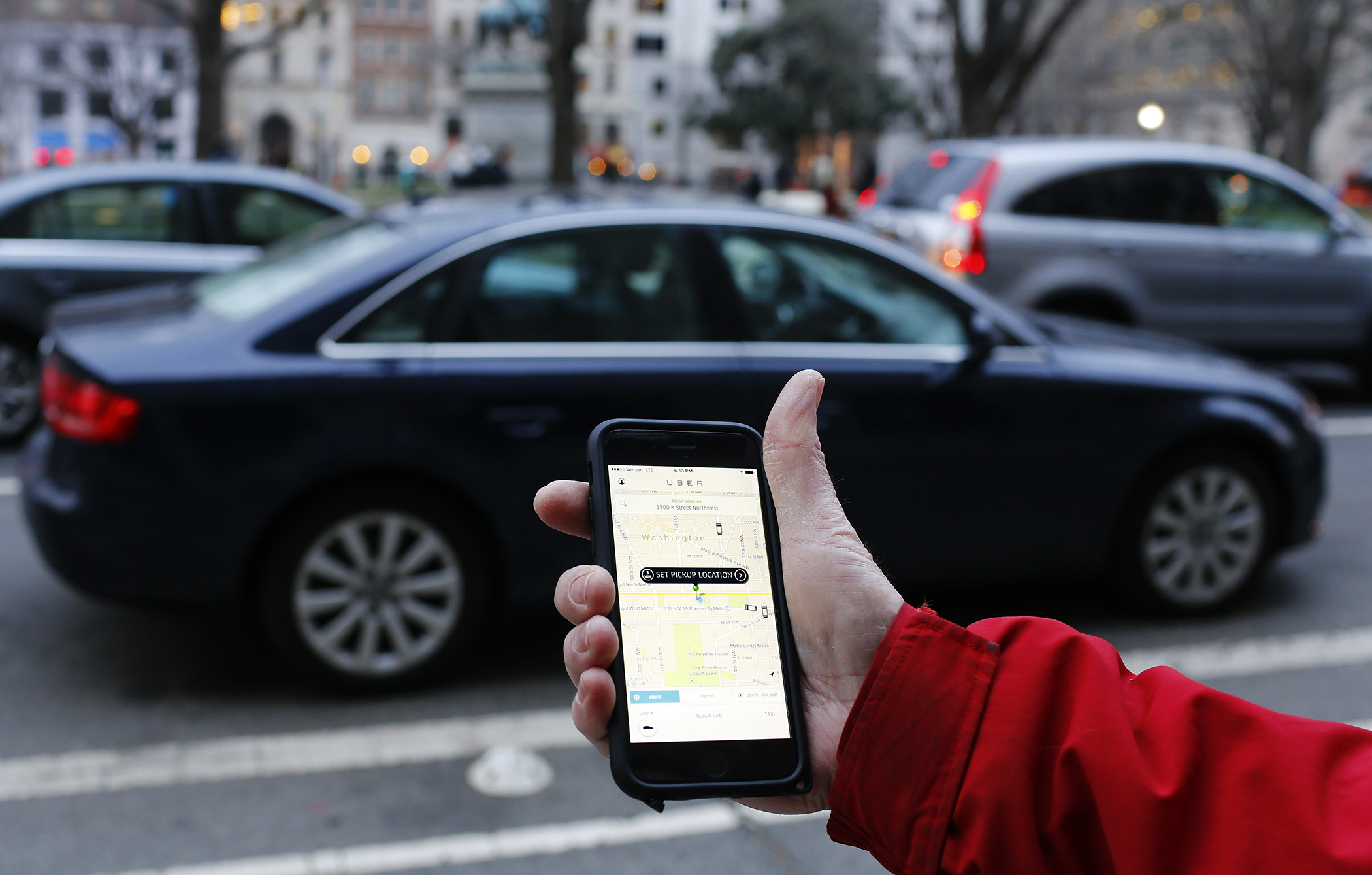
A former Uber driver named Ramy Kabany has filed a complaint against the fast-growing company in California, arguing that he should be reimbursed for work-related expenses such as gas, car maintenance and repairs. The case will hinge on whether a state labor commissioner decides that he is, as Uber claims, and independent contractor, or whether he should be classified as an employee.
Documents from the California Department of Industrial Relations, obtained by TIME through a records request, show that Kabany filed his complaint in July. His lawyer, Orange County-based Will Idleman, says that Uber failed to show up at an initial hearing designed to reach a settlement and that they are now waiting for their next hearing date to make arguments about why they believe Uber was wrong in classifying Kabany as an independent contractor—workers who are not legally owed such reimbursements. There has not yet been any ruling in the case.
“Uber holds themselves out as having this technological platform that just allows drivers and passengers to interact,” says Idleman, “but the reality is Uber is involved in every aspect of the operation.”
In a statement, Uber said, “No determination has been made on this claim, but any decision would be non-binding and have no impact on other drivers, the vast majority of whom say they love the flexibility they get by driving with Uber and the ability to work whenever and wherever they choose.”
In more than a dozen cases filed against popular gig economy companies such as Uber, Lyft and Postmates, lawyers and their plaintiffs have argued that factors such as how much these companies influence workers—how they do their jobs and for what price, for instance—are evidence that they are being misclassified by the companies.
Uber has said that by treating workers as freelancers they’re able to afford them more flexibility in their jobs, so they can work as much as they want, whenever they want. Other companies and some labor experts have said that labor laws which date back as early as the New Deal simply aren’t in sync with the way people are working today–a time when algorithms are directing hundreds of thousands of workers instead of foremen.
Companies such as Uber also save huge amounts of money by not being on the hook for employee-related expenses ranging from payroll taxes to workers compensation. In a previous case, a labor commissioner at the Department of Industrial Relations ruled that an Uber driver named Barbara Ann Berwick was an employee and was due $4,152 in expenses. Uber has appealed the ruling, which—as Uber emphasizes of any eventual ruling in this case—was non-binding and has no legal bearing on other drivers.
Idleman says that “there’s nothing really obviously different” about Kabany’s case and the Berwick case, and that even if a labor commissioner rules in their favor, they are prepared for Uber to appeal—and Kabany is prepared not to see the $15,000 he is seeking for quite some time, if ever. “The reality is that Uber has treated all their drivers the same,” he says, though Uber has disputed that assertion in a class-action suit that is still pending and could determine the status of more than 100,000 drivers in California.
Though the outcome of this case will only directly affect Kabany, it is more evidence of uncertainty that could force some of the most promising young companies in the world to revamp their business models, as Uber has warned it would have to do if forced to consider drivers employees.
Such conflicts could also eventually lead to an overhaul of the laws that govern how workers are treated throughout the country. While some prominent labor experts believe Uber drivers and the like are simply employees being cloaked in freelancer’s clothing, several have also suggested that rather than simply classifying workers as independent contractors or employees, it might be time to consider creating a third category.
“We’re in this weird grey area where we’re moving from the traditional economy to the gig economy,” says Idleman. And definitive answers to exactly how workers in the gig economy should be viewed have so far been elusive. The same labor commission that will hear Kabany’s case, and that ruled in Berwick’s favor, previously found that another Uber driver was an independent contractor. Bodies in other states have ruled similarly.
For now, one worker trying to find his way in this new space, believes this is how he must “seek justice,” Idleman says.
More Must-Reads from TIME
- Cybersecurity Experts Are Sounding the Alarm on DOGE
- Meet the 2025 Women of the Year
- The Harsh Truth About Disability Inclusion
- Why Do More Young Adults Have Cancer?
- Colman Domingo Leads With Radical Love
- How to Get Better at Doing Things Alone
- Michelle Zauner Stares Down the Darkness
Contact us at letters@time.com